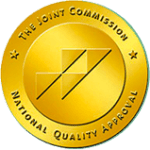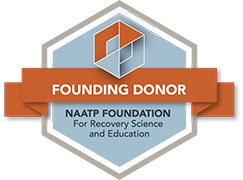Applying the 12-Step Program to Your Recovery in the Upcoming Year
With the New Year having just taken a turn, many people are looking to change their lives for the better. If you’re currently in recovery, you may plan to become stronger in using the coping skills you’ve learned, or to continue to remain diligent in your sobriety. It’s quite an accomplishment to have sought treatment, as many people fail to do so. Once you’re there, however, your journey truly begins – and it’s a long, winding path that’s always worth it in the end. No matter how nerve-wracking the upcoming year may seem, it’s good to know that you’re not alone; there are many other people who are dedicated to becoming a better version of themselves, but it all takes hard work and dedication – and you must work on your recovery one step at a time.
About the 12-Step Program
Originally developed in 1938, 12-Step programs have changed thousands of lives with a structure that has led those in addiction recovery to connect with a power greater than themselves. 12-Step programs, such as Alcoholics Anonymous (AA) or Narcotics Anonymous (NA), are designed to fit anyone and everyone, with the idea of it being a fellowship to help those who need resources and support. As noted by Alcoholics Anonymous, anonymity is seen as a crucial component to the program in order to help maintain privacy and respect.
In Akron, Ohio, Dr. Bob Smith and Bill Wilson, two men who struggled with alcoholism, designed 12-Step programs based on what worked for them in recovery:
- Abstinence
- Fellowship with others
- Surrendering to a higher spiritual power
Their aim was to create a program that welcomed people who struggled with addiction, with key principles of honesty, spirituality, and peer mentorship. They certainly succeeded, as 12-Step programs have expanded all of the world to help not only those struggling with alcoholism, but for those with gambling addiction, mental health conditions, drug addictions and more. The twelve steps presented in these programs truly place an emphasis on key spiritual components, such as humility. In fact, a 2016 review published in the journal Alcohol Treatment Quarterly highlights several ways 12-Step programs apply humility in recovery:
- Acknowledging the inflated and failed sense of self before a Higher Power
- Being honest about one’s faults before another person
- Making amends to others when possible
- Working through one’s faults as a personal goal and as a spiritual fulfillment
In addition, the twelve steps cover a broader range of aspects related to spiritual growth, such as honesty, faith, surrender, willingness, forgiveness, recovery maintenance and more. What if you want to dive into this more for the upcoming year?
Applying What You’ve Learned in the 12-Step Program
The great news is that 12-Step programs are designed to be straight-forward. Although each person is on their own journey, the principles covered are quite universal; this way, peers and advocates in recovery can be sure to speak the same “language” regarding the overall path of healing and transformation. It’s important to note that 12-Step programs are meant to serve as a lifestyle aid, not as a cure. Recovery is something that we must work towards every single day for the rest of our lives – but you can take major strides within this upcoming year if you stay focused on your goals.
You can easily use the twelve steps to strengthen your sobriety in some pretty amazing ways:
- Create a visual map of the steps and what they mean to you. Several years ago, Texas Christian University (TCU) developed a guideline for mapping out this information, and it was published in the Substance Abuse and Mental Health Services Administration (SAMHSA) National Registry or Evidence-Based Programs and Practices.
- Answer some challenging questions pertaining to some of the steps. For example, Step Two is this: “We came to be aware that a Power greater than ourselves could restore us to sanity.” Do you have any fears about believing in something greater than yourself? What are some good examples of what sanity means to you? How is having a closed mind harmful to your recovery? Contemplate on some of these types of questions, and even record your thoughts in a journal if you’d like.
- Read books that promote what you’re doing. Besides the Big Book of AA, there are several others that are worth reading, such as All the Light We Cannot See: A Novel by Anthony Doerr, Daily Reflections: A Book of Reflections by A.A. Members for A.A. Members, and Twenty-Four Hours a Day.
- Make an active decision to incorporate more love into your life. Choose to see the good in others, and in yourself. Connect with a Higher Power through meditation, prayer, nature walks and more. Explore different hobbies and connect with others to discover what some of your true passions are in life.
Don’t wait any longer to begin the journey towards recovery today. Hope is not lost, and healing is right around the corner.
This is the year to change your life from suffering due to the disease of addiction to thriving in the sunlight of the spirit of sobriety. As the world’s first 12-Step treatment center, established in 1939, High Watch Recovery is dedicated to educating patients on 12-Step principles, actions, philosophies, and lifestyles, preparing them to live a happy and healthy sober life after graduating. For information on our continuum of clinical care and our compassionate approach to treatment, call us today: 860.927.3772.








